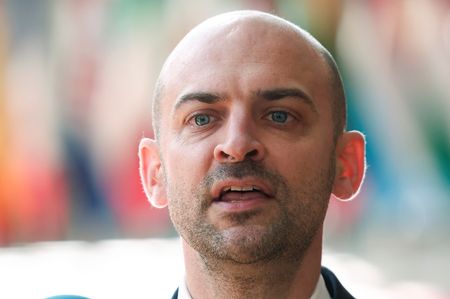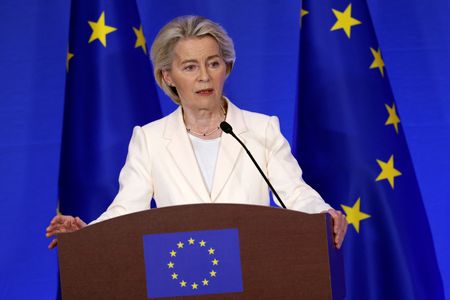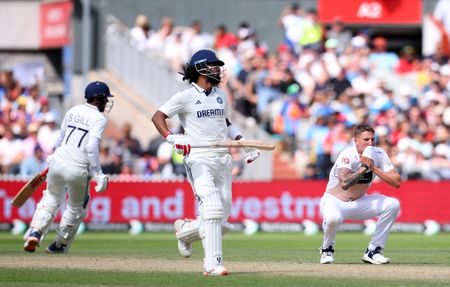By Lawrence White
LONDON (Reuters) -NatWest’s first-half profit rose a slightly better-than-expected 18% as it grew loans and deposits, it said on Friday, allowing the British lender to announce a fresh share buyback worth 750 million pounds ($1.01 billion).
The British bank said operating pretax profit for the January to June period was 3.6 billion pounds, compared with the average of analysts’ forecasts compiled by the bank of 3.46 billion pounds.
The lender upgraded its key profit performance guidance for this year, saying it now expects to achieve a return on tangible equity of 16.5%, from previous guidance of up to 16%.
The upbeat earnings report followed a similarly strong performance announced by rival Lloyds on Thursday, thanks in part to resilience from British households and businesses in the face of a murky economic outlook.
The bank’s buyback announcement was in line with the 730 million pounds that analysts had predicted, and could further boost shares that have already risen 47% in the last year.
NatWest on May 30 announced its return to full private ownership, ending a costly, taxpayer-funded government investment that dated back to its rescue in the 2008 crisis.
The bank, then known as RBS, has since transformed from a sprawling global investment bank into a domestic-focused corporate and retail bank, meaning it has been largely insulated from the market turmoil surrounding U.S. President Donald Trump’s trade tariffs.
After nearly two decades of shrinking its business, it has begun to snap up rivals, buying the banking arm of supermarket retailer Sainsbury’s in June last year amid a wider wave of consolidation in Britain’s financial industry.
That deal added 2.2 billion pounds in customer balances for NatWest in the second quarter, it said, helping its overall 8 billion pounds of loan growth in the period.
Such borrowing, coupled with relatively low impairments, has helped allay fears for now that Britain’s slow economic growth and sticky inflation would stifle businesses and drive them and mortgage borrowers into default.
Competition is likely to intensify further this year following Santander’s acquisition of TSB, which created a scale rival to incumbents like NatWest and Lloyds.
($1 = 0.7407 pounds)
(Reporting by Lawrence White; Editing by Jan Harvey)










